Doctors, nurses from across the US step up to help NYC on the coronavirus front lines
"It's our responsibility to step up," one nurse said.
Jamie Edens and Ryan Ward arrived in New York City last week after a whirlwind road trip from their home in Tulsa, Oklahoma. The two intensive care-unit nurses were on their way to help fight the novel coronavirus.
New York state has been hit the hardest by the virus, with more cases than any other state and more deaths than the 9/11 terror attacks. With so much need, particularly in New York City, Gov. Andrew Cuomo has temporarily suspended licensing requirements as part of a plea for doctors and nurses from out of state to come and help.
Medical professionals like Edens and Ward have heeded his call, responding to an online post from a staffing agency seeking crisis-traveling nurses.
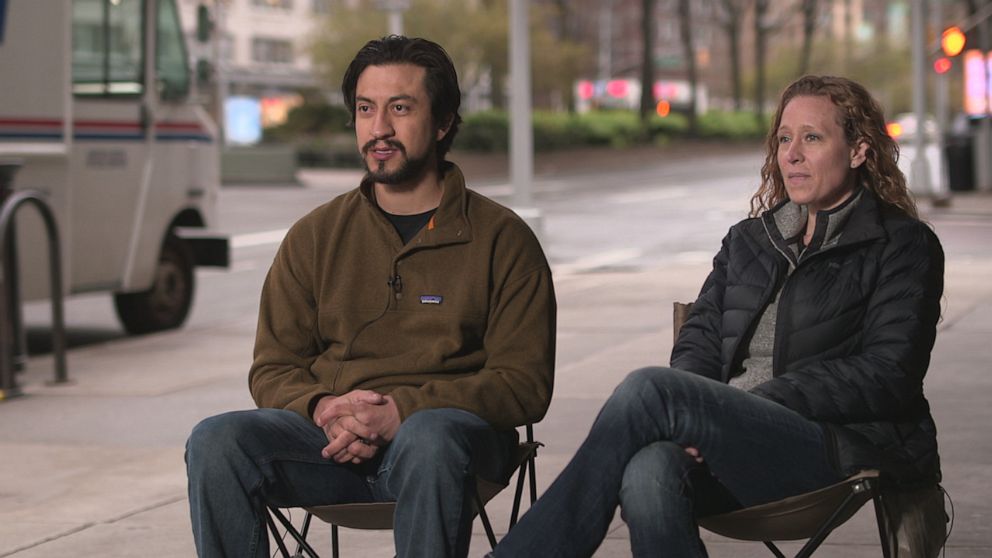
"I feel like it's our responsibility to step up and do what we've been trained to do, and what we've known and felt like was our calling to do," Edens said.
The couple are part of a growing wave of hundreds of nurses who will be expected to work 12-hour shifts for 21 days straight. They were hired by a staffing agency, one of many that incentivize the kind of work they're doing by paying so-called "crisis rates," which range from about $4,000 to over $10,000 a week -- higher than normal rates.
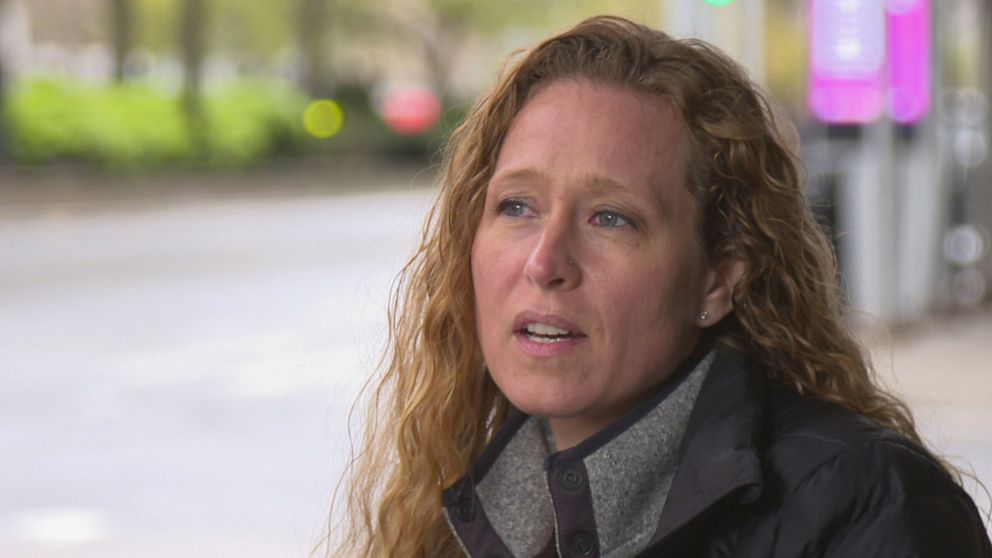
Ward said that while the financial incentive is "obviously a big part of what got us here," the trip to New York City had also sparked a "spiritual shift" for them.
"This isn't going to end in New York," Edens added. "This is going to be in our backyard at home, and I would hope that some nurses would take a step away from their families for a second and come help us."
The couple were assigned to work overnight shifts in the ICU, albeit at different hospitals in New York City -- Ward at one in Manhattan and Edens at one in Brooklyn. In video diaries, in which they spoke about the scenes inside the hospitals over their first few days, Ward and Edens both described the staff as overworked.
"It is bad," Ward said. "They are absolutely overloaded. Patients are incredibly sick. Everyone's [on a ventilator]. Everybody's COVID. It's all the things you would absolutely expect. The nurses, they're overworked. They're having a hard time and they've been doing this for weeks."
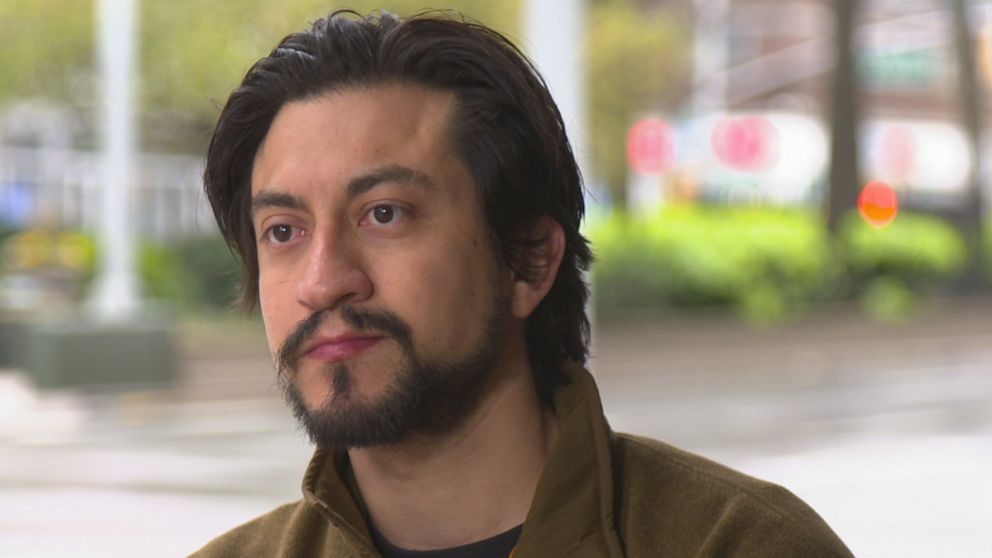
Luke Adams, a critical care nurse from Bloomsburg, Pennsylvania, committed to a 13-week assignment in a Staten Island hospital. He's living in a hotel now, but to save money he said that when he first arrived he was sleeping on a baby mattress in the back of his rental car.
"You can't build a nurse, you can't build a doctor so you have to get them here," Adams said.
The workload has increased dramatically compared to what Adams is used to, he said, noting that normally there would usually be two patients for every one nurse. Now, he has 16 patients to care for.
"Having 16 of those critically-ill patients on ventilators and being responsible for all the medications that they're on ... it's not just me," he added. "There are other nurses that are there."
He called those nurses whose home base is in New York City, "heroes."
"To the people I work with. To the people in the city. You guys are the real heroes to me because you didn't have a choice," he said. "And you just keep showing up, doing your job, and I know it's hard. I could feel that on the first day."
There are moments where all the hard work pays off, though. Adams said that some of the people who've been on ventilators for two weeks or more -- an "eternity," he said -- are now coming off.
"The success stories are starting to happen. I cannot begin to describe how much that makes a difference, because for two straight weeks, it felt like we were losing," he said.
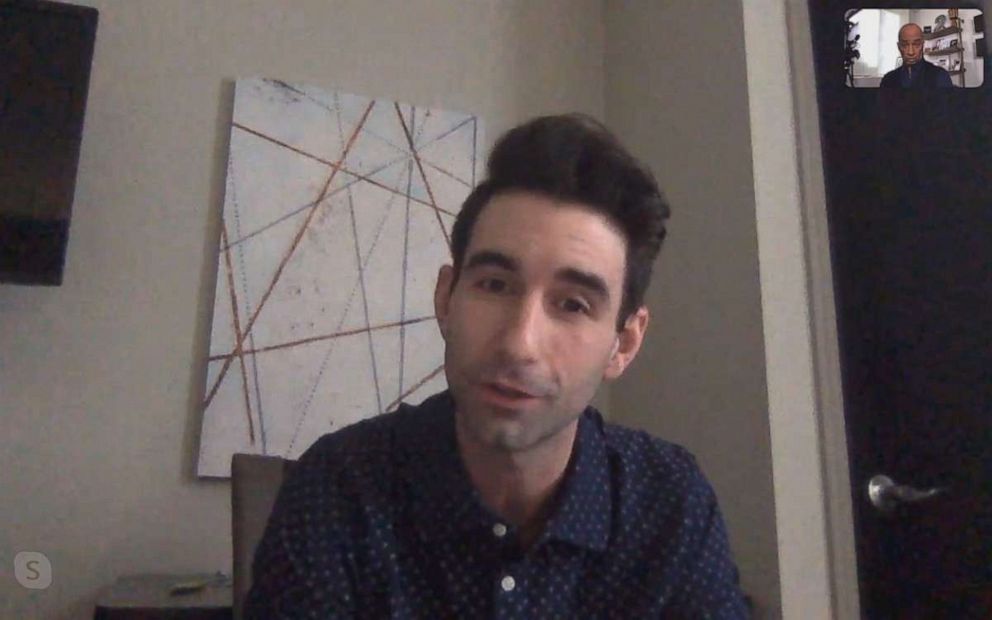
Adams said he wants his 10-month-old daughter and 8-year-old son to know of that responsibility and why their father answered the call.
"Every emergency calls on a different service," he said. "The skills that I've honed over the last 11 years were suddenly in need. … If you have the ability, you have the responsibility and that's what I want my kids to know."
To his son, Adams said he wanted him to know that "this will pass, and I will be home, so there's no need to worry."
"I know this was difficult," he continued. "But the three months that are gone would have paled in comparison to how I would have felt if I didn't come and help."
With nearly 150,000 cases of COVID-19 in the state -- over three times that of New Jersey, which has the second most cases -- many health care workers within New York are also stepping out of their specialties to help with the crisis.
Dr. William Levine, head of orthopedic surgery at New York-Presbyterian Hospital and one of the top orthopedic surgeons in the city, previously operated on shoulders and elbows. Now, he and one of his residents, Dr. Lynn Ann Forrester, are working 12-hour shifts in the emergency room, treating COVID-19 patients.
"I was doing stuff that I haven't done in 25 years," Levine said. "We have all these ICU beds that never existed and all these patients that are filling those beds who are ventilated, they're sick and they need care that our emergency room teams and our regular ICU teams cannot cover by themselves — just can't do it."
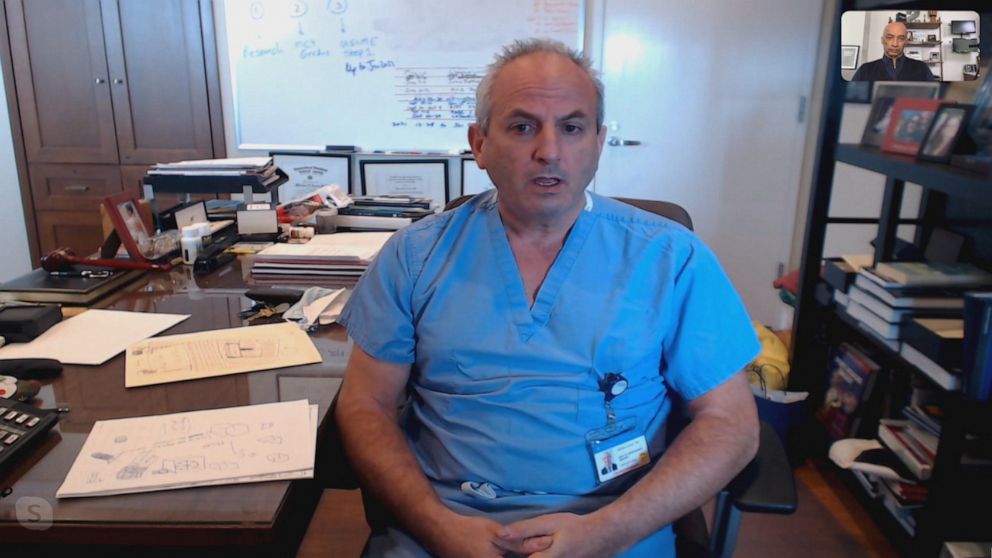
Levine said the situation has caused him to break down in tears more "in the last couple of weeks than in the last couple of years," but then "the weight of this whole experience catches up with you."
Levine won't stop working on COVID-19 patients until they get word that the number of cases has already plateaued and begun dropping, he said. With 2,400 coronavirus patients in the New York-Presbyterian system and about 650 of them on ventilators, he said they've "still got a lot of work to do and a lot of help to get us past this point."
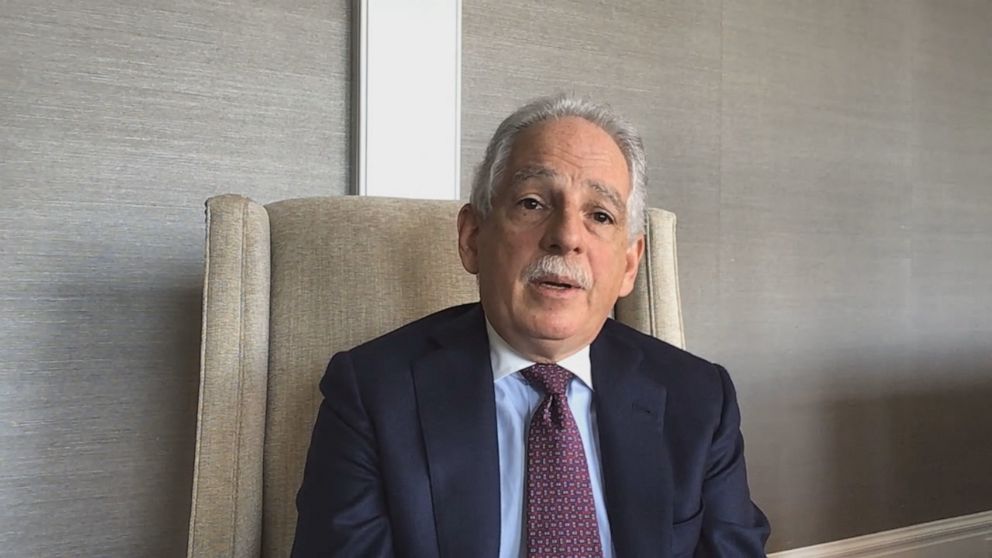
New York-Presbyterian's President and CEO Dr. Steven Corwin said that 2,000 doctors, 1,000 nurses and 500 general employees within his hospital system have volunteered to be redeployed to the front lines of the COVID-19 pandemic.
"The level of commitment has just been extraordinary," Corwin said. "The outpouring of selflessness is really extraordinary, and it's a real spirit, it's the American spirit, it's the New York spirit, it's a can-do attitude."




